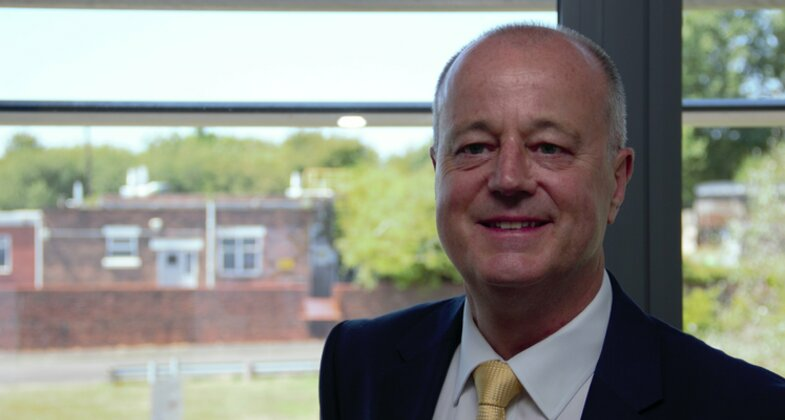Board Evolution: An interview with Tim Cooper, Non-Executive Director for Renold Plc & Pressure Technologies Plc
Board Evolution – Berwick Partners are currently undertaking a series of interviews with business leaders, to understand how they and their Boards have adapted and reacted to the increasing complexities of the world in which we operate. We are examining the importance of leadership DNA and the behaviours, traits and skills that are vital to an evolving Board.
As part of the research, Berwick Partners’ Jonathan Burke spoke to established leaders from the UK’s Manufacturing sector, from both the corporate Plc and SME environments. In our latest interview we hear from Tim Cooper – a former Executive Director from a FTSE 250 Plc, and now a Non-Executive Director for Renold Plc, and Pressure Technologies Plc.
Considering the turmoil and uncertainty that COVID-19 has caused, what should be done to prepare the board / ExCo, to ensure they can rise to new and unexpected challenges in the future?
It must be about boards being able to move at speed based on an environment of openness and trust. I have been on the board at Renold for two years, which has given me time to build relationships with the leadership team and to get to know their characters.
We moved very quickly, very early with the COVID-19 crisis – we have a plant in China, so we could see what was coming. As with the Great Financial crisis our top line dropped, so we knew what we had to do. As a result, Renold is doing well this year, partly through having put in place the cost and cash controls to get our debt down.
It is about how you work as a leadership group. You cannot wait for the next board meeting to make a decision: NED’s need to be available at the drop of a hat and support the ExCo.
Leadership is about making judgement calls, even when you do not have all the facts.
Given the breadth of issues that boards need to adapt to, such as Brexit, Sustainability, Technology Transformation, D&I, Supply Chain & Business Resilience, has COVID accelerated or slowed the pace of change on these subjects?
It will have slowed certain things down because the ExCo has had to re-prioritise and change some of their focus in the light of COVID-19.
However other activities have accelerated. For example, the UK and other governments have highlighted low-carbon industry as key to their plans for economic development, post pandemic. At Pressure Technologies this has accelerated investment in product development and operational capability to offer safety critical high-pressure storage systems for the growing hydrogen market.
The scale and impact of COVID-19 has been beyond the imagination of the majority. How are you seeing leaders evolve in this crisis?
Good communication from the leadership team is key. For instance, when a business planned its furlough strategy and decided what action it needed to take, it is important that the organisation understood where the leadership team is coming from. Even if the decisions are not popular, good employee communications can help them understand why change has happened and will help maintain their respect for the business.
Having the values of fairness and honesty are essential – you need to treat everyone the same and be transparent with your decisions.
Can you truly have a board/ExCo for all seasons – boom, bust, crisis, recovery, or growth? How do effective leaders bring the best of themselves to bear?
Given the experience and age of the leadership teams that you typically see on an ‘industrials board’ I think the answer is yes – you should be able to have experience of both restructuring and growth – people are likely to have gone through a couple of financial crises.
What is the single most valuable trait you look for in appointing individuals to a board/ExCo – both historically and now as we look to the ‘new normal’?
Integrity, to me, is the most valuable trait that I would seek. It is so important for the rest of the board and the organisation as a whole to have that trust in their leadership.
In volatile times effective succession planning might be considered lucky coincidence. How have you seen boards and ExCo’s nurture talent to ensure businesses retain the right people with the right skills for the right moment in the economic cycle?
Preparing future talent for what life can be like on the board can be done in a structured way. You know who the rising talent in your organisation are, so enabling them to interact with the board, perhaps through asking them to deliver a strategic project or by involving them in a debate. Brief them regularly on how the company is performing and what the shareholders are thinking.
Do businesses need to be bolder in their decisions regarding board structure? If so, how?
I think businesses certainly need to be bolder from a diversity perspective – this is what drives different points of view. The important thing to consider here is that some companies find it very difficult to attract diversity to their leadership teams, sometimes because of the sector they are in, even though the board may be desperate to recruit such talent.
Organisations that have an international footprint should have an international make-up to their board.
Post-COVID-19, does the relationship between the NED’s/main board and ExCo need to evolve?
Ensuring that there is trust and respect around the boardroom table, and that everyone has the same objective, enables the relationship across the leadership group to be effective. Again, diversity is also important: but not all companies are able to attract diverse leaders – because of their size or sector.
For more information please contact Jonathan Burke, Head of the Manufacturing and Engineering practice at Berwick Partners.






